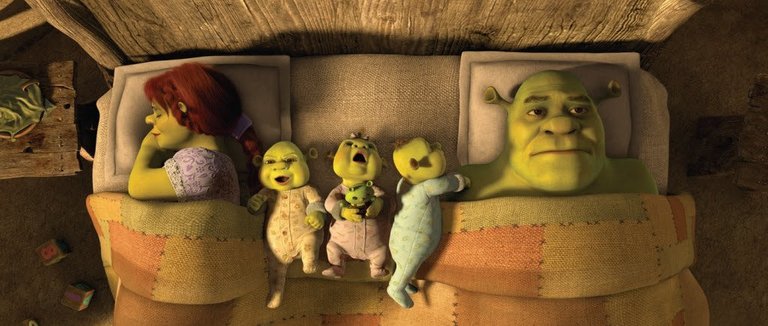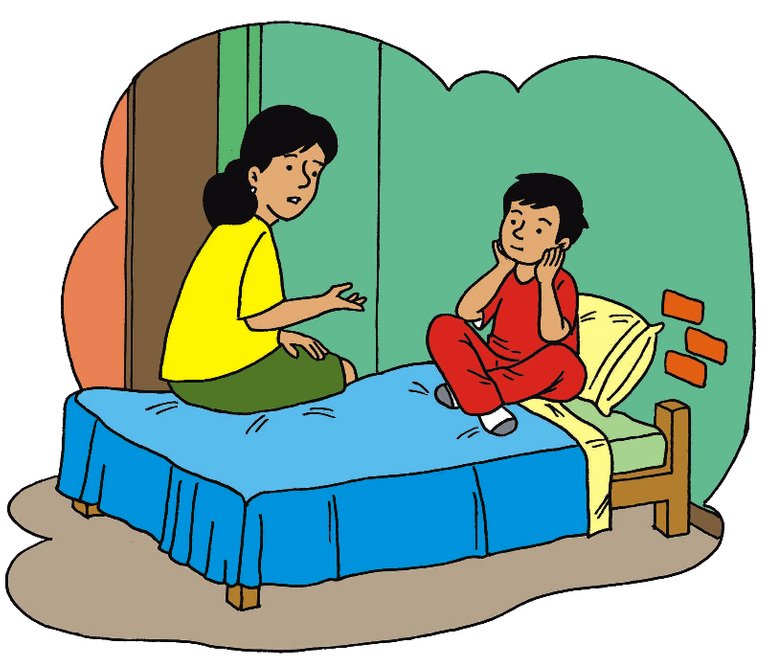For both the child and the adult, the dream symbolizes the separation with the external world and exclusive union with the internal world in which fantasies, imagination, and instinctual needs are found.

The dream is the physiological state in which relationships with real people disappear and where there is no censorship of one's actions. Hence, it can generate various types of anxiety in relation to internal images, the terrifying content of fantasies, the repressed instinctual needs and the fears of dangerous situations experienced while awake.

That is why when we have children, sleep is one of the most difficult routines to regulate and habituate hours, place, ways, among others. In addition, each stage of its development has a challenge for the mother. For example, in children from 0 to 3 months the sleep is stable mostly if they do not have tensions such as hunger or pain. Also, from 3 to 12 months the lack of motor stimuli or poor or inadequate contact with the mother can affect their sleep function, as well as, situations that generate anxiety such as the exit of teeth, the control of early sphincters, etc..

On the other hand, when they are in the age of 1 to 3 years, the rituals to sleep appear, where the story, the song, the favorite toy, among other rituals are necessary. Likewise, from 3 to 5 years, the fears of darkness and loneliness arise. And it is precisely at this stage where it is difficult for these same fears to leave the bed of the parents.
However, what about this habit of children sleeping with parents? What happens when this custom goes from birth to 5, 6 years or more ...? This routine can be harmful for the development of the child as well as for the relationship of the parents or even for single parents.
It is important to note that parents are responsible for even children do not sleep alone in their rooms because, they are the ones that promote this custom for various reasons which in themselves have nothing bad or are with bad intentions such as : feeling of greater control and protection towards children, for "security", absence of the couple and the avoidance of being alone, lack of space in the home or for other personal reasons that may range from cultural to personality characteristics.

That is why specialists in the area of Psychology recommend that children sleep in their own room independently from their parents. As this may cause for example, in the child attachment problems as well as deterioration in the privacy of the parents and in the case of single parents dependence on the children.
It is true that many parents can give their opinion according to their own experience that neither they nor the child have had any problems having this nocturnal routine as a practice, which is valid and is not intended to judge such experiences.
However, here are some recommendations for those who want to take them into account, if the age of the children is advancing and still sleep with you, causing tantrums and tantrums when we try to pass them to your room.
Consider:

1.It is recommended that since the child is born sleep in your room or cradle: Yes! I know that by reading this recommendation many mothers will say What? And the anxiety increases to a million. However, in theory it should be the main option to consider, since the child's adaptation will be easier to their new environment, and this does not mean that they will lose contact with the mother.Source
On the contrary, it is at the time of breastfeeding in which this bond is created and perfected. So, mom without fear you can try if you have not yet been born hij @.
But ... if this was not what you did from the beginning, quiet ... There is hope and you can try it with the following:

2. Take the child to his room progressively and in the presence of the accompanying object: the recommendation is that mom, dad or the two together sit by the bed DO NOT LIE! and be with the child for a while until he falls asleep. During that time avoid distractions such as games, conversations or something else. Source
But rather say: "We came to accompany you until you fall asleep. Tranquil @ that nothing will happen. " It requires discipline on the part of the parents, since in some moments it will be inevitable not to talk or play with the child. If it is inevitable that you can not converse, you can choose to read stories or sing a song related to sleep.

Very well, the boy manages to fall asleep, but ... he gets up and goes to the parents' bed again. If this is the case, then try the next tip:
3. If you get up and go to bed, you have to do the same process as before (take him to his room and wait for him to go back to sleep), so that the parents are tired. Certainly, habits require patience and perseverance. The first nights will be exhausting and one or two will be a "fraud" but do not be discouraged and continue to persevere in implementing this new routine.

There will be times when the child becomes a tyrant, throwing tantrums and tantrums, but these behaviors should not dominate us but we must learn to regulate the behavior not yielding to the whims and desires of them.
One of the ways to regulate behavior and make the habit is through the last advice:
4. "If you wake up call me, do not get up": this is said to the child with the purpose of remaining in his bed and unhappy the behavior of going to the bed of the parents. In this way, it is advisable for parents to be awake at least 15 or 30 minutes after the child has fallen asleep, since, if a mishap occurs, it is prevented.


Surely, for some these tips are not very relevant because they can be seen as limited or out of reach. However, trying to apply them with discipline and perseverance can have a beneficial result of independence and autonomy of the children.